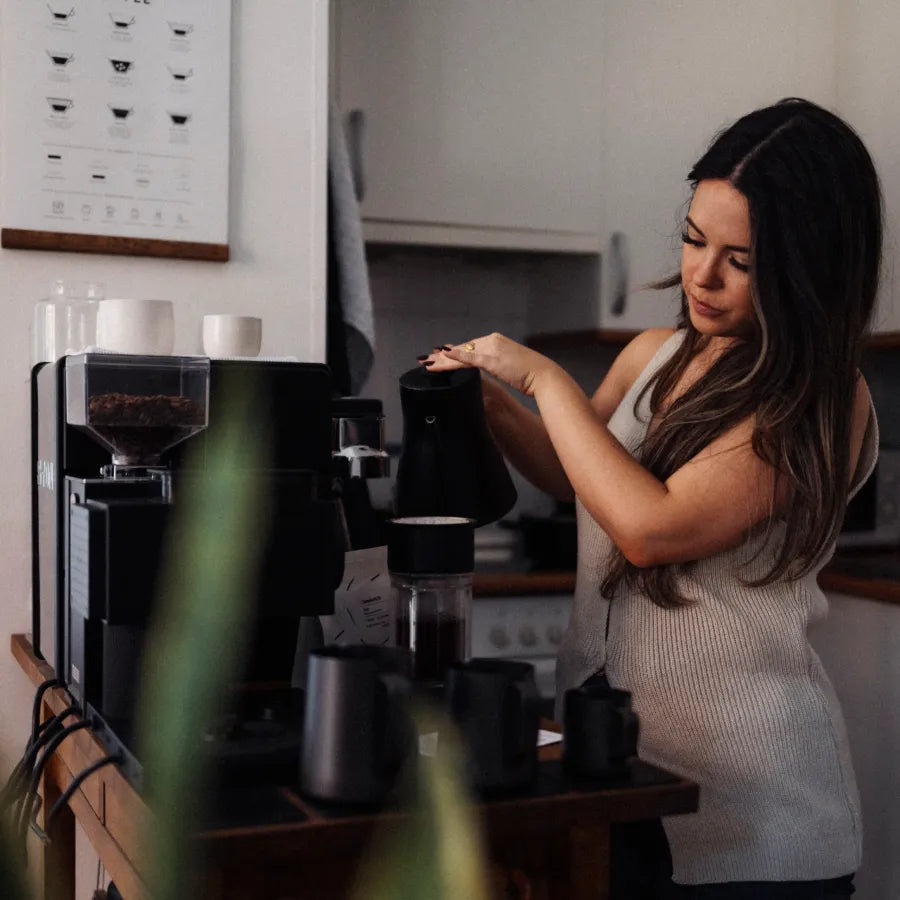Chelbesa
Get to know this coffee in detail
CChelbesa is an Ethiopian coffee produced by around 1,000 smallholder farmers who cultivate the Korume and Wolisho varieties on plots of 2 to 3 hectares, at altitudes above 1,950 metres in Yirgacheffe.
The cherries are delivered to the Chelbesa One washing station, managed by SNAP Specialty Coffee, a project founded in 2008 with a commitment to improving the lives of producers through education, sustainability, and consistency.
The washed process begins with a water-based selection, followed by pulping and dry fermentation for 2–3 days.
The coffee is then washed and slowly dried over 7–10 days on raised beds, with the parchment turned daily to ensure even moisture.
The result is a clean, vibrant expression of Ethiopia’s coffee heritage.
Meet the producer
Chelbesa: The essence of Ethiopian coffee from Yirgacheffe
An origin in the highlands
In the heart of Yirgacheffe, one of the most renowned coffee-growing regions in the world, Chelbesa coffee is born, a coffee that embodies the essence and tradition of Ethiopia. Grown at altitudes ranging from 1,950 to 2,200 meters above sea level, this lot is the fruit of the labor of approximately 1,000 small producers, each with plots of between 2 and 3 hectares. In these highlands, the Ethiopian Korume and Wolisho varieties find a perfect environment to develop their unique aromatic profile.
The community behind the coffee
Chelbesa takes its name from the "kebele," or local community, where the Chelbesa One washing station is located in the Gedeb area. It is here that the cherries, carefully hand-picked at their peak ripeness, are delivered by local producers. The washing station is managed by SNAP Specialty Coffee, a key partner in the coffee value chain, which has been working since 2008 to raise the quality and improve the living conditions of Ethiopian coffee farmers.

A process carefully detailed
The process that brings this coffee to life begins with a water selection, where defective cherries, or "floaters," are carefully separated. They are then pulped and dry-fermented in tanks for two to three days, a key step in developing complexity and cleanliness in the cup. The coffee is then washed and placed on raised beds for a slow, even drying process, which lasts between seven and ten days depending on the weather. During this time, the parchment is turned several times a day to ensure even moisture distribution, thus preserving the quality of the bean.
SNAP Specialty Coffee: More than just a beneficiary
Behind this meticulous work is SNAP Specialty Coffee, founded in Addis Ababa by Negusse in 2008. The company currently operates seven washing stations in key areas such as Sidama, Yirgacheffe, and the Guji region. Its business model is based on three fundamental pillars: consistency, education, and sustainability. But its work goes far beyond processing coffee: it is actively involved in training producers to strengthen the resilience and profitability of their crops.

Social and environmental impact
Last year alone, its team of agronomists trained more than 6,000 coffee farmers in land management, nurseries, and sustainable agricultural practices. This approach includes crop diversification and intercropping, a technique that not only protects the soil but also provides additional income for producing families. This social and environmental commitment translates into a direct impact on the communities' quality of life, while strengthening the long-term sustainability of Ethiopian coffee.
Tasting notes: a sensory journey
The result of all this effort is evident in every sip of Chelbesa: a washed coffee distinguished by its classic floral notes of jasmine and bergamot, with a sweet base of peach and vanilla and a subtle undertone of currant. Its finish is long and fruity, with a honeyed acidity and a silky body that make for an unmistakable sensorial experience.

More than a coffee, a story
Chelbesa is not just a coffee, but the sum of stories, traditions, and expert hands working passionately to offer us the best of Ethiopia. From the family plots in the hills of Yirgacheffe to the final cup, every step is imbued with care, knowledge, and a profound respect for the land and its fruits. Trying it is connecting with an ancient coffee culture and a project that looks to the future without losing sight of its roots.






